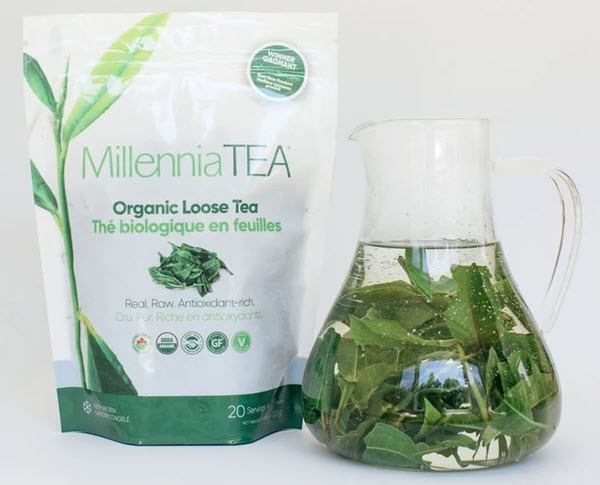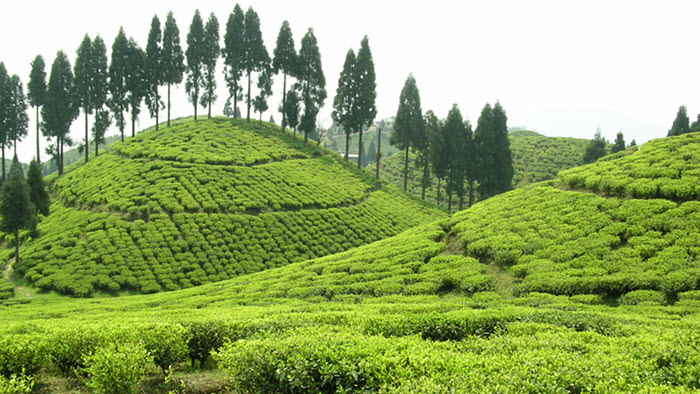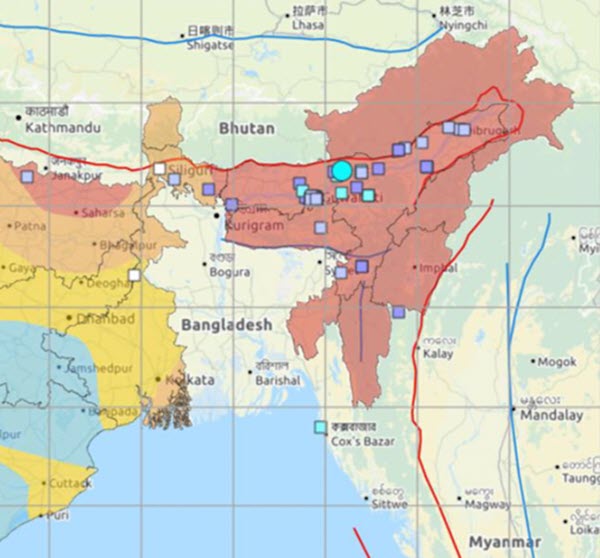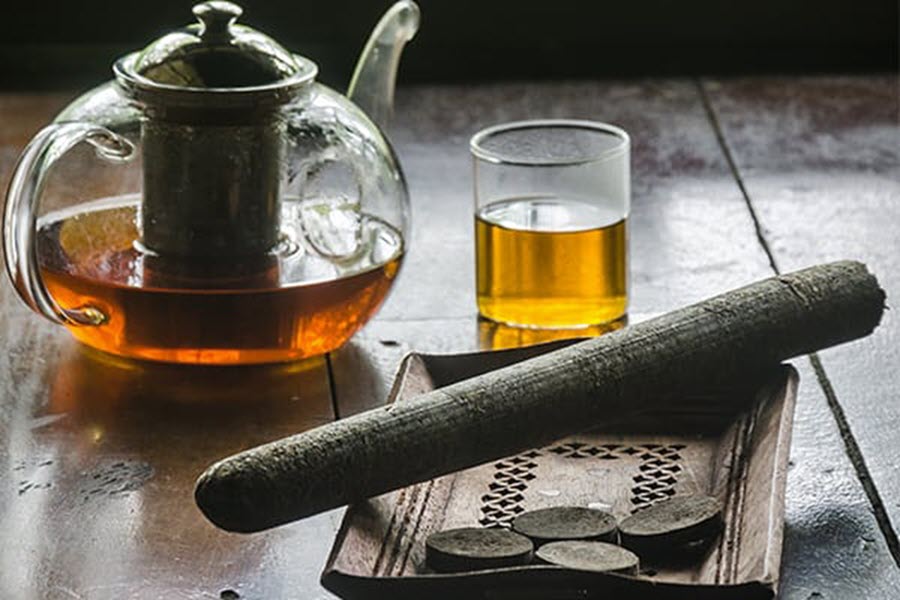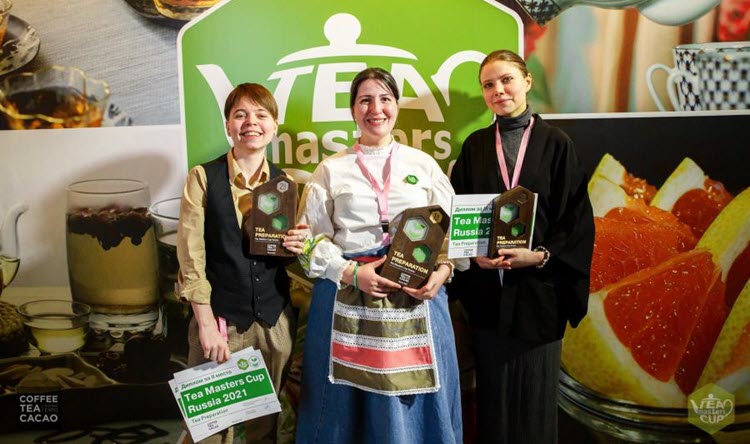Listen to the Tea Biz Podcast on iTunes | Spotify | Sounder | Stitcher | Alexa
Hear the Headlines for the Week of May 14

| Kenya’s Becoming Unbearably Hot for Tea
| Brexit Disrupts UK Tea Trade
| Colombo Tea Auction Transformed
| China Tea Price Watch | India Tea Price Watch
| INDIA IN-DEPTH: Q|A Raj Barooah, Director, Aideobarie Tea Estate
Features
Tea Biz travels to Los Angeles this week where Art of Tea founder Steve Schwartz, a graduate of the Ayurvedic Institute in New Mexico, describes tea as a powerful conduit for health and wellness…
… and then to Hawaii to interview tea adventurer and Jalam Teas Founder Jeff Fuchs who is sheltering there during the pandemic. Jeff shares stories about tea and tea culture and the tranquility it brings to all.

The Tranquility of Tea
By Jessica Natale Woollard
Author, adventurer, and tea lover, Jeff Fuchs has walked the Ancient Tea Horse Road, been featured in TV documentaries, and traveled extensively in the tea lands sourcing rare teas. His affinity for high-altitude treks equals his affinity for tea. He tells Jessica Natale Woollard, “I’ve had some of my best tea times in the mountains without necessarily having had the best teas.” Read more…
Related: Countenance: Travelers Along the Tea Horse Road by Jeff Fuchs

Tea is a Powerful Conduit for Health and Wellness
By Dan Bolton
Tea is a powerful conduit for health and wellness, says Steve Schwartz, founder of Art of Tea in Los Angeles and a graduate of the Ayurvedic Institute in New Mexico. In this segment, he discusses the challenging role for tea retailers amid the pandemic. Retailers are wise to offer counsel on the comfort and health benefits of tea, educating themselves in both the traditional and science-based properties and then sharing that knowledge with customers. Learn more…
Tea News you Need to Know
Kenya is Becoming Unbearably Hot for Tea
The red volcanic soils of Kenya’s Rift Valley, long sunny days and tropical rainfall are perfect for growing tea. At 2,000 meters [6,500 feet above sea level], the temperature is between 16 oC and 29 oC, generating new leaves at a fast pace making Kenya one of the most productive tea growing regions on earth.
All that is changing, according to Christian Aid, a charity that this week published 14 pages of troubling research into the future of tea in growing regions essential to Kenya’s status as the world’s largest black tea exporter.
The report highlights the work of Sadeeka Layomi Jayasinghe and Lalit Kumar, researchers who predicts that “climate change is going to slash optimal conditions for tea production by 26.2% by 2050.”
Tea grown in less favorable regions will experience 39% declines.
Lower quality leaf and less appealing taste will affect all growers. Kenyan farmers the most productive in the world harvesting an average of 1,500 to 3,300 kilos per hectare of made tea per year. Smallholders harvest an average 2,300 kilos per hectare.
Torrential rain and extreme temperature are the two biggest concerns. The combination encourages plagues of locusts and devastating floods. Temperatures will rise 2.5 oC to an average 23.5 oC with spells hot enough to kill mature tea plants.
Biz Insight – Researchers concluded that it will be very difficult for tea growers to move to new, higher altitude, previously uncultivated regions, they wrote. Tea is an example of how we are all connected, wrote one farmer. “We grow it here in Kenya and it’s enjoyed by people around the world. But if we are to carry on growing it we need those other, richer countries, to cut their emissions and to think about how we are affected as tea farmers.”

Brexit Disrupts UK Tea Trade
By Dan Bolton
Brexit disrupted the UK tea trade in significant ways. It is too early to assess the financial impact, but long-term change is apparent along with howls from tea lovers on the continent.
EU grocers specializing in British foods say their shelves are bare following the January 31 start of the EU-UK Trade and Cooperation Agreement ratified in May. The immediate shortages are the result of customs delays due to additional paperwork and transport bottlenecks caused by COVID. The 500,000 British ex-patriates living in EU countries that complained the loudest are some of the best customers for tea brands including Yorkshire Gold, PG Tips, Tetley, Twinings, and Typhoo.
The Brexit vote and drawn-out resolution of disputes unsettled traditional trade in tea. Kenya, the UK’s top tea trading partner at 62,000 metric tons, began selling tea direct to Europe, bypassing British tea packers for those in Germany and Poland. Brexit also realigned UK’s previous focus on non-EU markets.
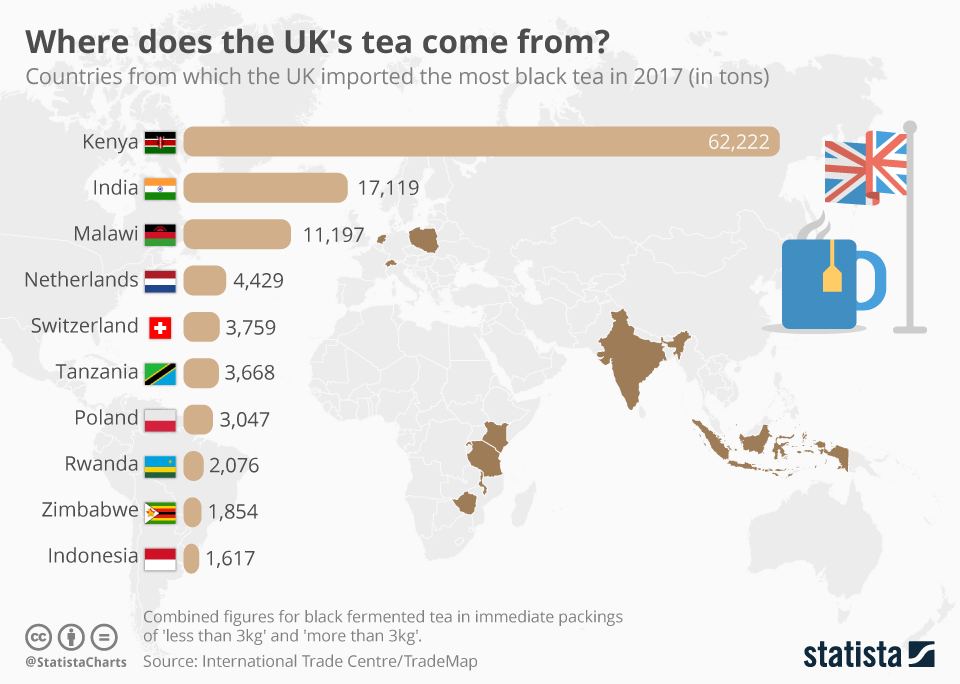
The United Kingdom re-exports 2.2% of the world’s tea by value. About 17% of the tea that arrives at its ports is packaged shipped to Europe. Volume in 2019 was 19 million kilos with 10 million kilos of that delivered to EU countries. The 2019 total reversed a steady decline in volume beginning in 2010 when tea exports totaled 30.5 million kilos.
Tea exports to non-EU countries increased to 8.8 million kilos in 2019 and continue to rise. UK tea export totals are in decline overall, but 2021 marks the third consecutive year that the UK recorded growth in overseas shipments to non-EU countries.
Biz Insight – Sales of goods exported to the EU declined steeply in January as Brexit rules were enforced. In February goods exported to the EU increased 4.5% and in March grew a solid 8.6%. Meanwhile, imports from non-EU member countries exceeded EU imports for the first quarter since 1997. While it is too soon to assess the full impact, UK residents remain skeptical of Brexit. The most recent YouGov poll showed that 51% of respondents think it was a wrong decision and 38% a right one, the largest gap since 2016, according to the Wall Street Journal.

Last Day to Reach Emergency Relief Fund Goal
A COVID-19 Emergency Relief Fund initiate by Vahdam India is nearing its goal with donations of 6.4 million rupees ($91,660) but needs an additional $15,000 boost to reach a 7.5 million rupees ($107,000) in five days. Donations to #RiseTogetherForIndia assist the non-profit Doctors for You deliver oxygen and relief services across India. Learn more and find a Ketto crowdfunding link to donate on the Tea Biz blog.

Colombo Auction Transformed
By Dan Bolton
Last year Sri Lanka confronted its past and raced beyond, scrapping a 127-year tradition, and transforming the Colombo Tea Auction into a digital workplace.
Tea generates 10% of the country’s wealth earning $1.2 billion on exports and employing two million people. Last year the pandemic closed not only the auction floor but prevented the hundreds of face-to-face interactions involved in storing, sampling, shipping, and presenting tea to buyers who rightly insist on sipping before bidding thousands of rupees for a lot. Shutting down the auction jeopardized the livelihoods of many more than the traders who attend.
A task force led by Anil Cooke, CEO of Asia Siyaka Commodities, worked with CICRA Holdings, a local information technology venture, coordinating with the Sri Lanka Tea Board to develop a training program while simultaneously customizing the auction software. Within days the digital platform earned the endorsement of auctioneers, brokers, technicians, and government officials.
Simulations enabled 300 key users to master the system which went live in early April 2020. A year later tea prices are stable, exports revived, trading is lively with many improvements in transactions thanks to a quick decision that took 20 years to contemplate.
Share this BLOG|CAST with your colleagues
View the Tea Biz Newsletter Archive
https://teabiz.sounder.fm/episode/news-01212021
Subtext
Avoid the chaos of social media and start a conversation that matters. Subtext’s message-based platform lets you privately ask meaningful questions of the tea experts, academics and Tea Biz journalists reporting from the tea lands. You see their responses via SMS texts which are sent direct to your phone. Visit our website and subscribe to Subtext to instantly connect with the most connected people in tea.
Podcast Players
| ITunes | Spotify | iHeart Radio | Stitcher |
| Google Podcast | Amazon Podcasts | Tune In | Sounder |
Subscribe and receive Tea Biz weekly in your inbox.






